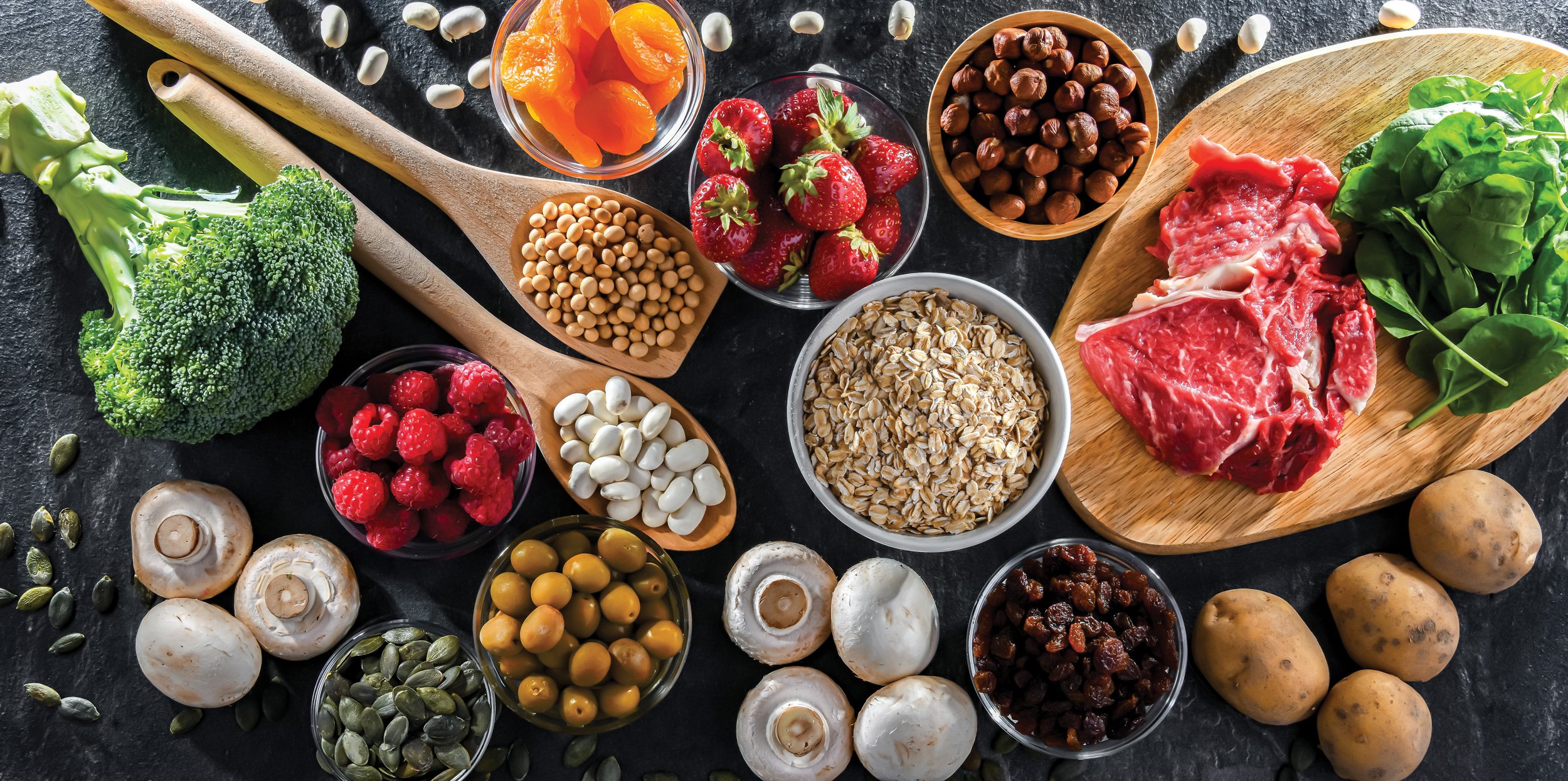
NATUROPATHIC TIPS
FOR IMPROVING IRON LEVELS
& OVERCOMING DEFICIENCY
February 29, 2024
Iron is a mineral that performs many important jobs in our body such as transporting oxygen, helping with energy production, supporting the immune system, helping our brain produce neurotransmitters, supporting thyroid function, and more!
Those are just some of the jobs that iron performs in our body, and they are very important jobs, so it’s no wonder that when iron levels are low we feel so run-down. Symptoms of low iron can include:
fatigue
brain fog, forgetfulness, feeling spaced out
headaches
shortness of breath, increased anxiety and panic
cold hands and feet
brittle nails and hair
painful cracking at corners of the mouth
weakness, dizziness
getting sick more often
Do you relate to these symptoms?
Be mindful not to self-diagnose, have a chat with your practitioner if you’re concerned about deficiency, a blood test is the best way to know for sure that iron deficiency is the problem.
A FEW NATUROPATHIC TIPS
1 Find a practitioner who will help you identify and treat the cause.
Underlying causes of iron deficiency can be; heavy menstruation, gastrointestinal bleeding, poor iron absorption, chronic inflammation, low iron diet, parasite infection, etc. Your practitioner should be helping you to address the underlying cause of iron deficiency as well as supplementing with iron.
2 Taking your iron supplement every second day.
Did you know that the liver has a role in deciding how much iron we absorb? One of its jobs is to prevent iron overload. It does this through a protein called ‘hepcidin’ which reduces absorption when we take a high dose of iron. Because of this, some studies suggest that taking iron supplements every second day may improve absorption and reduce gut symptoms.
3 Iron bisglycinate - improved absorption and less gut complaints.
A lot of iron supplements contain iron salts (ferrous sulfate or ferrus fumerate) which can cause gastrointestinal discomfort, particularly constipation. Iron glycinate (AKA ferrous glycinate, ferrous bisglycinate, iron bisglycinate) is a form of iron that is more easily absorbed and gentler on the gut.
4 Are you getting enough Vitamin A?
Vitamin A deficiency can contribute to iron deficiency by affecting iron metabolism and erythropoiesis (the process of making red blood cells). Vitamin A also helps to release iron from the liver and plays a role in the body's iron recycling system. Examples of Vitamin A sources include beef liver, cod liver, eggs, butter, sweet potatoes, carrots, pumpkin.
5 Take Iron supplements away from coffee, black tea, calcium, and zinc.
Tannins in coffee and tea, as well as zinc and calcium supplements can significantly reduce iron absorption. Be mindful of the best time to take your iron supplement. As a general rule aim for 1-2 hours away from coffee, black tea, calcium and zinc supplements.
6 Increasing absorption of plant based iron.
Plant sources of iron contain non-haem iron and phytates which can make iron absorption difficult. To improve plant based iron absorption here’s a few tips:
soak grains in warm water and a few tablespoons of vinegar or lemon juice before cooking
choose iron rich activated nuts and seeds (these have been soaked and then dried out again to reduce phytates and improve nutrient bioavailability)
slightly wilt iron rich leafy greens such as spinach or kale, and add a squeeze of orange or lemon juice
pair Vitamin C rich foods with plant based sources of iron.
I hope you found these tips helpful.
If you have any questions feel free to come and have a chat with me in store, you can find me at Market Organics Clayfield.
By Jessica Cook
BHSc Naturopathy
Registered with ANTA
(Australian Natural Therapists Association)

